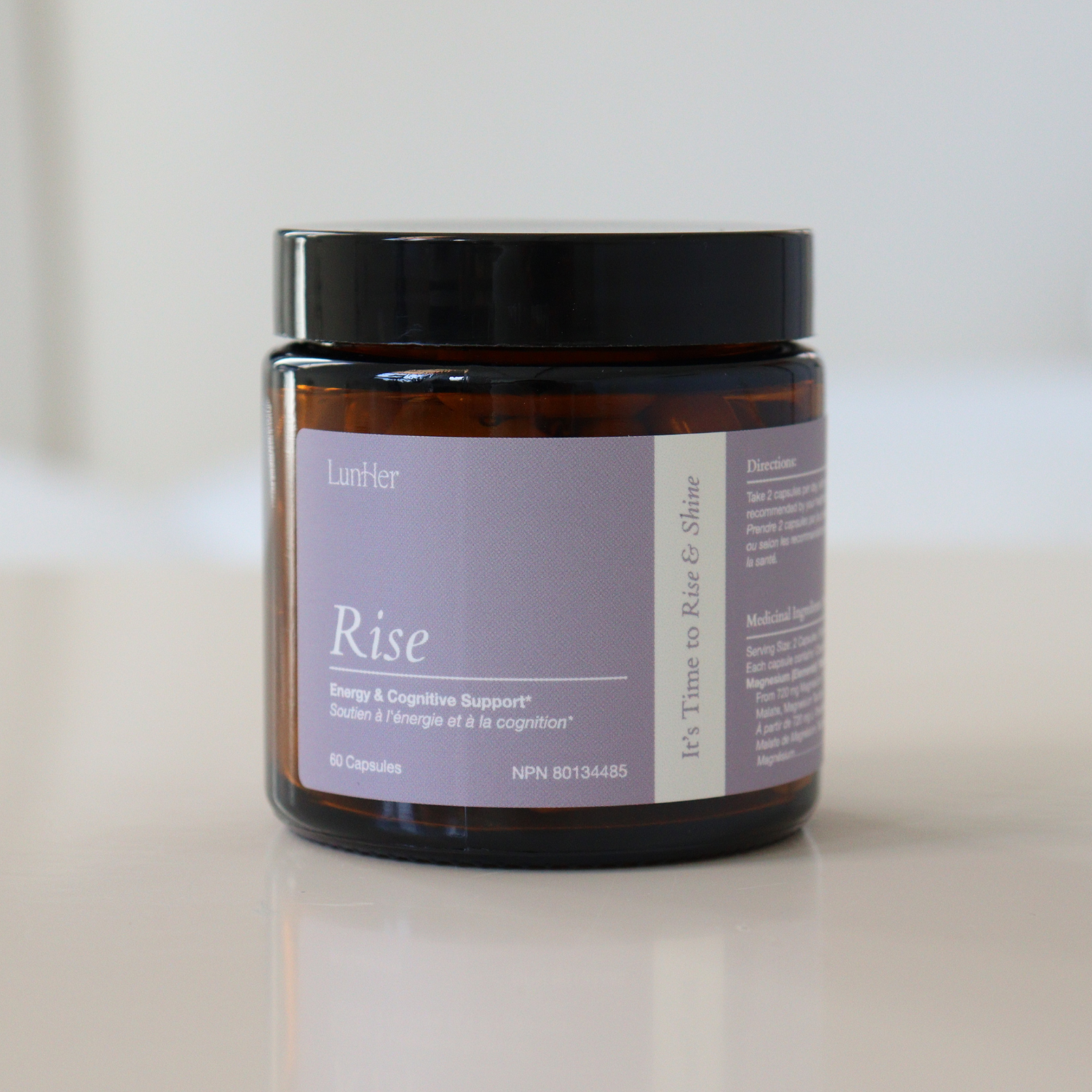Article: Can magnesium really impact stress and sleep?

Can magnesium really impact stress and sleep?
Written by Our Editorial Team & Medically Reviewed by Dr. Aisling Lanigan, N.D.
Research suggests that magnesium supports mental health, stress regulation, better sleep and circadian rhythm, mood regulation and improved energy. Read on to learn which form best suits your needs.
Can magnesium really impact mood and stress?
Magnesium is an abundant and important mineral in your body. It’s naturally present in many foods, commonly added to other food products, and widely available as a dietary supplement.
Magnesium is found in more than 300 enzyme systems in our bodies – systems that help regulate many important biochemical processes in the body. Some of these include: blood pressure regulation, muscle and nerve function, and blood glucose control. Maintaining healthy magnesium levels is essential to our bodies’ health, particularly bone and heart health.
When it comes to magnesium’s ability to support our moods, more clinical research is needed. But some early findings tend to suggest that healthy magnesium levels are connected to a range of mental health benefits.
Magnesium’s impact on mental health
Magnesium plays a role in about 80% of our body’s functions, including energy production. Magnesium deficiencies have the negative consequence of blocking the energy production pathway required to generate ATP, the molecule that provides energy for almost all metabolic processes. That helps explain why a magnesium deficiency can sometimes leave us feeling lethargic and fatigued. Maintaining healthy magnesium levels can help us feel energized and emotionally balanced. Magnesium is also known for its calming effect on our nervous systems, helping to prevent our stressful reactions from overwhelming us. When our nervous systems are in balance and our brain functions are sound, we are more likely to have better moods. Some studies have also suggested that magnesium can help with PMS-related mood changes.
“Magnesium plays a role in about 80% of our body’s functions, including energy production.”
Magnesium for mood
There’s some solid evidence to indicate magnesium’s positive impact on mood. In one animal study, mice with low magnesium levels showed higher levels of aggressive behavior than the mice who were given magnesium supplementation. The mice with low magnesium also demonstrated greater restlessness and higher adrenaline levels. These findings point to the probability that magnesium supports greater mental balance.
Human studies have yielded similar findings, too! One randomized, placebo-controlled study of 100 participants studied the effect of magnesium on people under mental pressure. The participants were divided into two groups – one that would be administered a daily supplementation of 400 mg of magnesium for 90 days, and another that would take a placebo. Researchers found that the magnesium group showed signs of great physiological regulation and mental balance. Part of magnesium’s benefit, per the study, is that it can prevent some of the worst symptoms of magnesium deficiency, including restlessness, irritability, and sleeplessness.
Magnesium for sleep and energy
Magnesium plays a key role in the parasympathetic nervous system, which is responsible for relaxation and the overall calming of our brains. Magnesium can therefore be a vital part of letting our bodies know when it’s time to get ready for bed. Indeed, some researchers believe that magnesium is essential to the body’s production of melatonin, sometimes known as “the sleep hormone”. Furthermore, one study of older adults with sleep issues showed that oral magnesium intake can lead to improved sleep. Another study – this one of nearly 4,000 young adults – showed that boosted magnesium intake led to improved sleep quality and duration. Since magnesium helps relax our muscles, it can help us fall asleep more easily. Magnesium has also been shown to support mental balance, which itself can lead to better sleep. Of course, mental balance is more easily achieved when you’re getting enough sleep!
Having more energy is a nice benefit to getting more sleep. Magnesium also plays a big role in supporting ATP production in the body, which is responsible for our energy levels. All told, magnesium’s effects on sleep and energy levels can do wonders for mood support.
Most effective forms of magnesium for mental health and mood
Magnesium L-threonate is a popular supplement for its potential brain and mood benefits. Magnesium oxide, likewise, is popular for its health benefits, including its effects on mood. The most easily absorbed forms are magnesium hydroxide, magnesium glycinate, and malate.
LunHer's Rest supplement is designed for mood balance and stress relief.
Magnesium Deficiency Symptoms
Some signs and symptoms of magnesium deficiency include:
-
loss of appetite
-
nausea and vomiting
-
fatigue and weakness
-
shaking
-
sleepiness
-
pins and needles
-
muscle spasms
-
hyperexcitability
-
abnormal heart rhythms
How to take magnesium to help improve your mood
When you’re adding a new supplement to your routine, consistency is the key. You can choose one of the more easily absorbed magnesium supplements, or one that’s best suited to your particular health – checking with a doctor about this would be a good call. Then make sure you stick to a daily routine, preferably taking it around the same time. Taking magnesium with food is preferable to taking it on an empty stomach.
Potential side effects and interactions
Some medications, such as diuretics and proton pump inhibitors (PPIs), can disrupt your body’s ability to absorb magnesium supplements. Consult with a doctor before commencing with a magnesium supplement routine.
Key takeaways
Magnesium is a vitally important mineral in your body. While more research is needed, the evidence suggests that magnesium supplementation can be good for your brain health and mood, supporting better sleep, greater emotional balance, and more energy.
Try our Magnesium supplements today, designed to help you feel your best.




